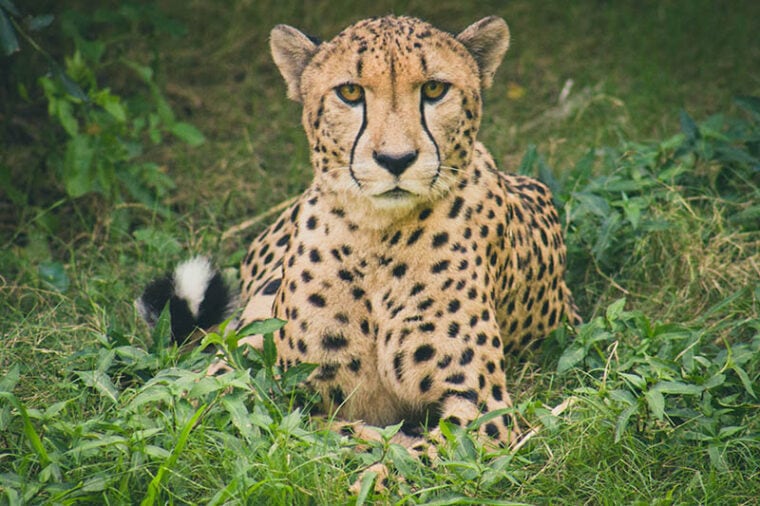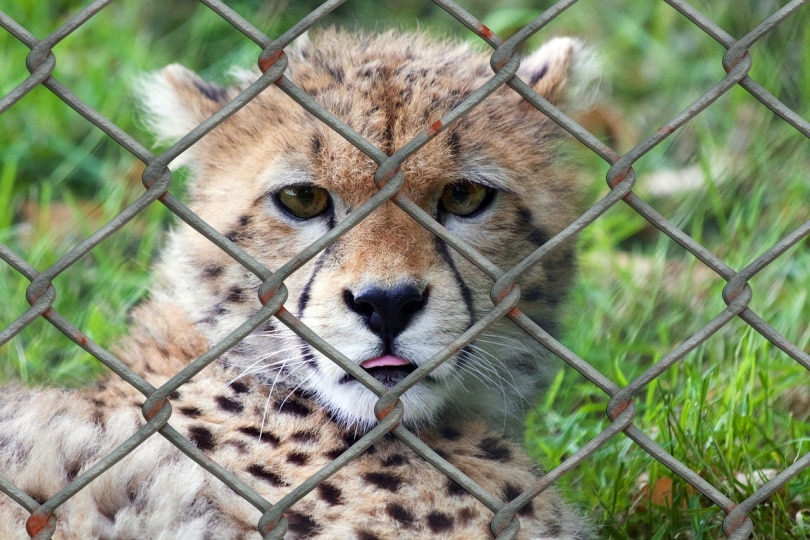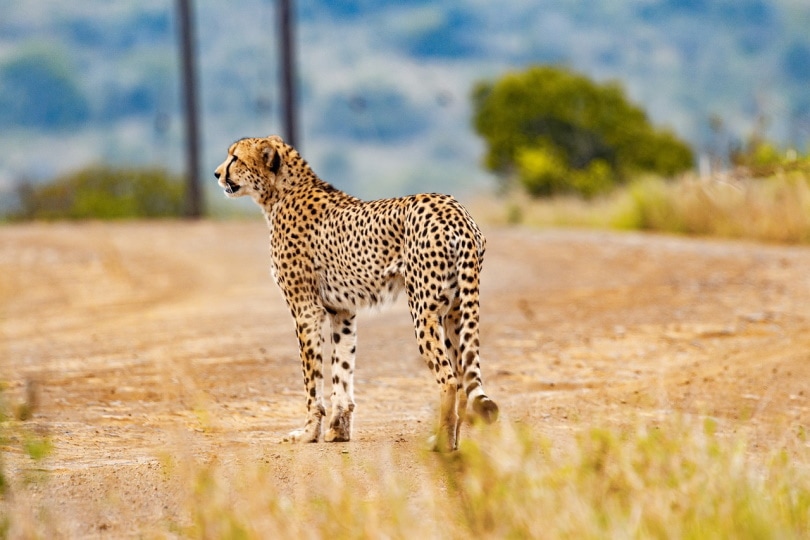
Unlike housecats, cheetahs are untamed cats that are excellent at stalking and hunting their prey. One would think that cheetahs would roar like lions and tigers, but that is not the case. The physical makeup of a cheetah prevents them from roaring like big cats, so cheetahs purr and meow like house cats. It has been suggested that they are not comfortable enough to purr around humans, however.
Cheetah Purring
According to Webster’s Dictionary, purring is described as “the low, continuous, vibrating sound a cat makes, as when content or any similar sound.” There is no scientific definition, however.
Humans tend to associate a cat purring with contentment and yet, cats purr when they are injured, excited, in pain, and when they are dying. Cats also purr when they are acting submissive and when they are giving birth. So, Is it possible that purring is an indication of more than just contentment?

The 4 Other Sounds Cheetahs Make
Cheetahs make the same sounds as a typical housecat. They meow and purr, and they do not roar like lions. Cheetahs are unable to roar like lions because their physical makeup is like that of a housecat. They have what is called a “fixed” voice box which causes their vocal cords to vibrate as they breathe in and out.
In addition to purring, cheetahs make other sounds like growling, yelping, and chirping.
1. Chirping
Female cheetahs will make a chirping noise when she is interacting with her cubs or when she wants to find a mate. Male and female cheetahs also chirp when they are trying to find one another. The sound of a cheetah chirping can easily be mistaken for a bird.

2. Yelping
The loud yelping sounds made by cheetahs have been known to be heard by humans as far as 2 km (1.24 mi.) away. The yelping sound is used to make contact. Yelping sounds are used mostly by mothers or young cheetahs when they have been separated from one another.
3. Moaning, Hissing, Growling, and Spitting
Whether a cat is wild, domestic, big, or small, they all express some degree of growling and hissing. When a cat growls or hisses, it is usually an indication of an unhappy cat.
We are all familiar with the harsh rasping sound coming from a cat’s vocal cords. A cat will growl to claim ownership of something, when they feel preyed upon or threatened, or when they are telling you to get back. If the threat or action does not cease, the cat will begin to hiss. Cats will usually hiss as a last resort and before it is about to attack. They will also hiss to intimidate or establish dominance.
In situations that are combative or agonistic, cheetahs are known to moan, hiss, growl, and make spitting sounds.

4. Meowing
Did you know that there are other cats, besides housecats, that meow? Cheetahs, lion cubs, cougars, snow leopards are also known to meow. Meowing is used to get affection and food or to find one another.
Domestic cats do not meow at one another, however. They only use meowing to communicate with their humans. No one else gets the honor.
Conclusion
So unlike tigers and lions, cheetahs meow and purr like house cats and they do not roar. They do have an explosive yelp, however. While it may be common for cheetahs to purr, they are not comfortable purring in front of humans, so don’t expect to go to the zoo to hear a cheetah purr and meow.
Featured Image Credit: Christin Noelle, Unsplash







